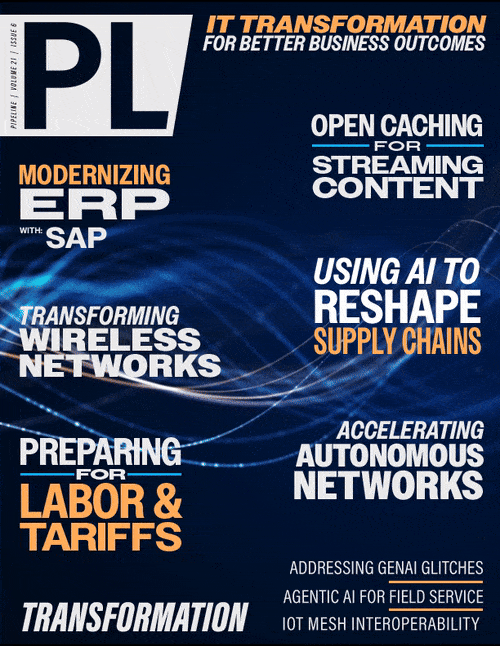The Future of Supply Chain: How AI is
Reshaping Logistics and Visibility
A report from Accenture indicates that AI-driven personalization in logistics can improve customer satisfaction rates by up to 25 percent while simultaneously reducing last-mile delivery costs.
The Future of AI-Powered Logistics
Looking ahead, AI will continue to revolutionize logistics operations by integrating with autonomous vehicles, warehouse robotics, and predictive analytics. Self-driving trucks and drone deliveries powered by AI are expected to become mainstream, reducing human dependency in supply chain logistics. AI-driven warehouse automation, such as robotic picking and automated inventory tracking, is already being used by leading e-commerce companies to increase efficiency and reduce fulfillment errors.
The global AI logistics market is projected to grow at a CAGR of 25 percent, reaching a valuation of $20 billion by 2030. As AI-powered logistics solutions become more advanced, businesses that fail to integrate AI into their operations risk falling behind their competitors.
AI’s Role in Supply Chain Risk Management
One of the most significant benefits of AI in supply chains is its ability to improve risk management. By leveraging AI-driven predictive analytics, businesses can identify and mitigate potential supply chain disruptions before they impact operations. For example, AI can analyze weather patterns, geopolitical instability, and supplier performance data to predict delays and suggest alternative sourcing options.
According to McKinsey,companies that invest in AI-powered risk management tools have been able to reduce supply chain disruptions by up to 30 percent. This proactive approach allows businesses to maintain continuity and reduce costly delays, ultimately increasing overall supply chain resilience.
AI-Driven Personalization in Supply Chain Logistics
In addition to improving efficiency, AI is enhancing personalization in supply chain logistics. AI-powered demand sensing technology helps businesses tailor their inventory and shipping strategies based on consumer behavior and market trends. For instance, AI-driven fulfillment centers use machine learning to predict which products will be in demand in specific geographic locations, ensuring that inventory is positioned strategically to minimize delivery times.
A report from Accenture indicates that AI-driven personalization in logistics can improve customer satisfaction rates by up to 25 percent while simultaneously reducing last-mile delivery costs.
AI and the Evolution of Smart Warehouses
As AI continues to evolve, smart warehouses are becoming a critical component of supply chain modernization. AI-powered warehouse management systems (WMS) are revolutionizing operations by integrating real-time tracking, robotic automation, and machine vision technologies. AI-driven robotics can improve warehouse picking accuracy, reducing human error and increasing fulfillment speed.
According to a study by Deloitte, companies implementing AI-powered warehouse automation have experienced a 40 percent improvement in order accuracy and a 30 percent reduction in labor costs.
These advancements allow businesses to scale operations efficiently and meet rising consumer demands while optimizing costs.
The Competitive Advantage of AI-Powered Supply Chains
Companies that proactively integrate AI into their supply chain strategies gain a significant competitive advantage. AI not only enhances efficiency and cost savings but also enables businesses to operate with agility in dynamic market conditions.
A recent survey by the Boston Consulting Group found that companies leveraging AI in supply chain decision-making have outperformed competitors by up to 20 percent in profitability. With AI-driven insights, organizations can anticipate demand fluctuations, optimize sourcing strategies, and reduce lead times. Businesses that embrace AI today will be better positioned to navigate the complexities of tomorrow's global supply chains and drive sustainable growth.



















